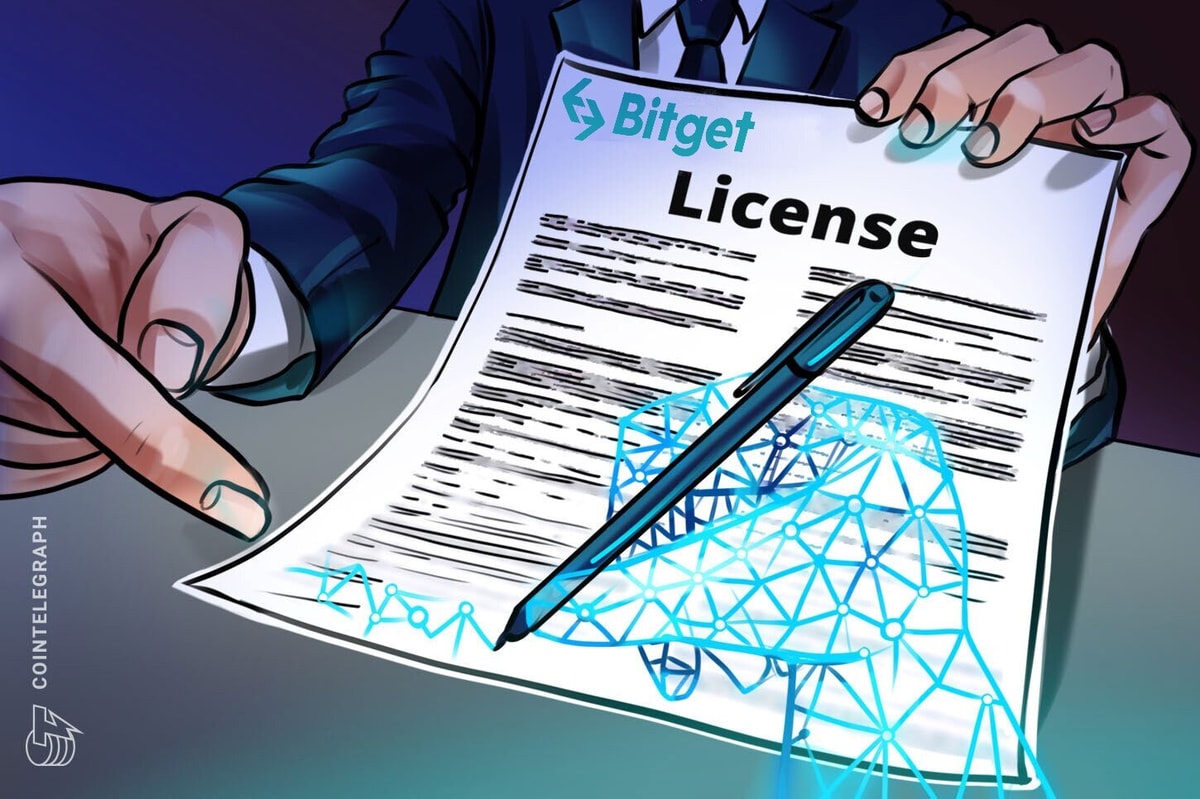Bitget obtained regulatory approval from Georgia to operate as a digital asset exchange and custodial wallet provider within the Tbilisi Free Zone (TFZ). This expands Bitget’s licensing presence in Eastern Europe, a region with an increasing focus on crypto regulation and supportive policies.
Bitget has been expanding in Europe since MiCA took effect in 2024. Through its affiliate Archax Ltd, it holds authorization from the UK’s Financial Conduct Authority (FCA). It is also registered with Italy’s Organismo Agenti e Mediatori (OAM) and is listed as a virtual asset service provider (VASP) in Poland, Bulgaria, Lithuania and the Czech Republic.
Related: El Salvador grants Bitget license for Bitcoin services
Georgia marks Bitget’s latest expansion step in Europe thanks to a favorable business climate and supportive regulatory framework. The Georgian government actively engages with businesses when shaping crypto-related laws and provides grants to blockchain and crypto companies through the Georgian Innovation and Technology Agency (GITA).
Gracy Chen, CEO of Bitget, told Cointelegraph:
“As Europe moves toward the Markets in Crypto-Assets Regulation (MiCA) implementation, Georgia stands out as a key market providing regulatory clarity, tax advantages, and real user adoption.”
With this license, users in Georgia can access Bitget’s full range of services — including spot trading, futures and copy trading — all within a fully compliant, locally regulated environment. Chen further explained that users also benefit from enhanced security measures such as proof of reserves and a dedicated protection fund.
Bitget Wallet launches QR crypto payments in Vietnam
Building on its broader push to expand globally across multiple business lines, Bitget Wallet has introduced national QR payment support as part of its global PayFi initiative, with Vietnam becoming the first market to go live. This new feature allows users to make crypto payments using VietQR, Vietnam’s national QR standard.
The integration enables users to pay with stablecoins such as USDT (USDT) and USDC (USDC), supporting multiple blockchains, including Ethereum, Tron, Solana, Base, TON and BNB Chain. Future updates will also introduce auto-swap functionality, allowing payments using any token without manual conversion.
Jamie Elkaleh, chief marketing officer at Bitget Wallet, told Cointelegraph: “Users in Vietnam have already used Bitget Wallet to pay with stablecoins for everyday expenses like food, groceries and retail items simply by scanning VietQR codes.”
In collaboration with licensed partner AEON’s crypto payment framework, Bitget Wallet now enables stablecoin payments through more than 55 banks and payment institutions supporting VietQR, including VietinBank and Vietcombank. Over 2 million merchants nationwide accept the standard, spanning large retailers to small businesses.
Vietnam’s evolving regulatory environment further supports the growing adoption of digital assets. On June 14, the National Assembly approved the Law on Digital Technology Industry, which formally recognizes crypto assets and sets the stage for the regulated development of the sector.
Coming into effect on Jan. 1, 2026, the law defines crypto and virtual assets separately, introduces cybersecurity and Anti-Money Laundering requirements aligned with global standards.
Magazine: Crypto is used for payments in Georgia, not to get rich: Tbilisi Crypto City Guide
Read the full article here


